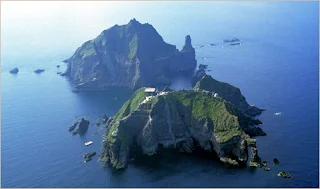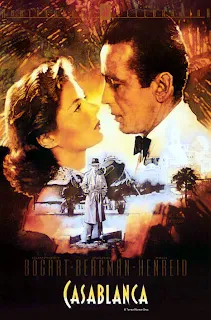Italy
Italy i/ˈɪtəli/ (Italian: Italia [iˈtaːlja]), officially the Italian Republic (Italian: Repubblica italiana), is a unitary parliamentary republic in South-Central Europe. To the north, it borders France, Switzerland, Austria and Slovenia along the Alps. To the south, it consists of the entirety of the Italian Peninsula, Sicily, Sardinia–the two largest islands in the Mediterranean Sea–and many other smaller islands. The independent states of San Marino and the Vatican City are enclaves within Italy, whilst Campione d'Italia is an Italian exclave in Switzerland. The territory of Italy covers some 301,338 km2 (116,347 sq mi) and is influenced by a temperate seasonal climate. With 60.6 million inhabitants, it is the fifth most populous country in Europe, and the 23rd most populous in the world.
 |
| Emblem of Italy |
Through much of its post-Roman history, Italy was fragmented into numerous city and regional states (such as the Republic of Venice and the Church State), but was unified in 1861, following a tumultuous period in history known as "Il Risorgimento" ("The Resurgence"). In the late 19th century, through World War I, and to World War II, Italy possessed a colonial empire, which extended its rule to Libya, Eritrea, Somalia, Ethiopia, Albania, the Dodecanese and a concession in Tianjin, China.
Modern Italy is a democratic republic. It has been ranked as the world's 24th most-developed country and its Quality-of-life index has been ranked in the world's top ten. Italy enjoys a very high standard of living, and has a high nominal GDP per capita. It is a founding member of what is now the European Union and part of the Eurozone. Italy is also a member of the G8, G20 and NATO. It has the world's third-largest gold reserves, eighth-largest nominal GDP, tenth highest GDP (PPP) and the sixth highest government budget in the world. It is also a member state of the Organisation for Economic Co-operation and Development, the World Trade Organization, the Council of Europe, the Western European Union and the United Nations. Italy has the world's ninth-largest defence budget and shares NATO's nuclear weapons.
Italy plays a prominent role in European and global military, cultural and diplomatic affairs. The country's European political, social and economic influence make it a major regional power. The country has a high public education level and is a highly globalised nation.
Italians
Italians (Italian: italiani) are the citizens or native-born people of Italy; or people of descent to the ethnic and ethnolinguistic group associated with the Italian language.
In 2010, in addition to about 56 million Italians in Italy, Italian-speaking autonomous groups are found in neighboring countries: about 500,000 in Switzerland, a large population in France,[6] and smaller groups in Slovenia and Croatia, primarily in Istria and Dalmatia. Because of wide-ranging diaspora, about 5 million Italian citizens and nearly 80 million people of full or part Italian ancestry live outside of Italy, most notably in South America, North America, Australia and parts of Europe.
Italians have greatly influenced and contributed to science, arts, technology, cuisine, sports and banking[7] abroad and worldwide.[8] Italian people are generally known for their localism, both regionalist and municipalist,[9] attention to clothing and family values.[10]
Italian language
Italian ( italiano (help·info) or lingua italiana) is a Romance language spoken mainly in Europe: Italy, Switzerland, San Marino, Vatican City, by minorities in Malta, Monaco, Croatia, Slovenia, France, Libya, Eritrea, and Somalia,[3] and by immigrant communities in the Americas and Australia. Many speakers are native bilinguals of both standardised Italian and other regional languages.[4]
According to the Bologna statistics of the European Union, Italian is spoken as a mother tongue by 59 million people in the EU (13% of the EU population), mainly in Italy, and as a second language by 14 million (3%).[2] Including the Italian speakers in non-EU European countries (such as Switzerland and Albania) and on other continents, the total number of speakers is more than 85 million.
In Switzerland, Italian is one of four official languages; it is studied and learned in all the confederation schools and spoken, as mother language, in the Swiss cantons of Ticino and Grigioni and by the Italian immigrants that are present in large numbers in German- and French-speaking cantons. It is also the official language of San Marino, as well as the primary language of Vatican City.[5] It is co-official in Slovenian Istria and in Istria County in Croatia. The Italian language adopted by the state after the unification of Italy is based on Tuscan, which beforehand was a language spoken mostly by the upper class of Florentine society.[6] Its development was also influenced by other Italian languages and by the Germanic languages of the post-Roman invaders.
Italian is descended from Latin. Unlike most other Romance languages, Italian retains Latin's contrast between short and long consonants. As in most Romance languages, stress is distinctive. In particular, among the Romance languages, Italian is the closest to Latin in terms of vocabulary.[7]
Italian Proverb·Sayings
Advice
¶ After the game, the king and pawn go into the same box.
¶ After the ship has sunk, everyone knows how it might have been saved.
¶ The best armor is to keep out of range.
Language
¶ Translators, traitors.
Money
¶ Money is money's brother.
Poison
¶ Poison quells poison.
Notes
Italians
[6]^ Cohen, Robin (1995). The Cambridge survey of world migration. Cambridge: Cambridge University Press. pp. 142–144. ISBN 0-521-44405-5.
[7]^ Macesich, George (2000). Issues in Money and Banking. United States: Greenwood Publishing Group. p. 42. ISBN 0-275-96777-8.
[8]^ Michael Barone (2 September 2010). "The essence of Italian culture and the challenge of the global age". Council for Research in Values and Philosophy. Retrieved 22 September 2012.
[9]^ Keating, Michael (2004). Regions and regionalism in Europe. Cheltenham: Edward Elgar Publishing. p. 378. ISBN 1-84376-127-0.
[10]^ "Italian family and culture". Syracuse University in Florence. Retrieved 22 September 2012.
Italian language
[2]^ a b c d Eurobarometer – Europeans and their languages PDF (485 KB), February 2006
[3]^ a b c d Ethnologue report for language code:ita (Italy) – Gordon, Raymond G., Jr. (ed.), 2005. Ethnologue: Languages of the [4]World, Fifteenth edition. Dallas, Tex.: SIL International. Online version
[5]^ Languages of Italy - Ethnologue - Languages of the World - Copyright © 2010 SIL International.
[6]^ Legge sulle fonti del diritto of 7 June 1929, laws and regulations are published in the Italian-language Supplemento per le leggi e disposizioni dello Stato della Città del Vaticano attached to the Acta Apostolicae Sedis.
[7]^ Modern Italian The Italian Language Retrieved 2010-05-16
[8]^ a b Grimes, Barbara F. (October 1996). Barbara F. Grimes. ed. Ethnologue: Languages of the World. Consulting Editors: Richard S. Pittman & Joseph E. Grimes (thirteenth ed.). Dallas, Texas: Summer Institute of Linguistics, Academic Pub. ISBN 1-55671-026-7.
http://en.wikipedia.org/wiki/Italy
http://en.wikipedia.org/wiki/Italian_people
http://en.wikipedia.org/wiki/Italian_language






_in_Europe.png)




+001.jpg)



.svg.png)